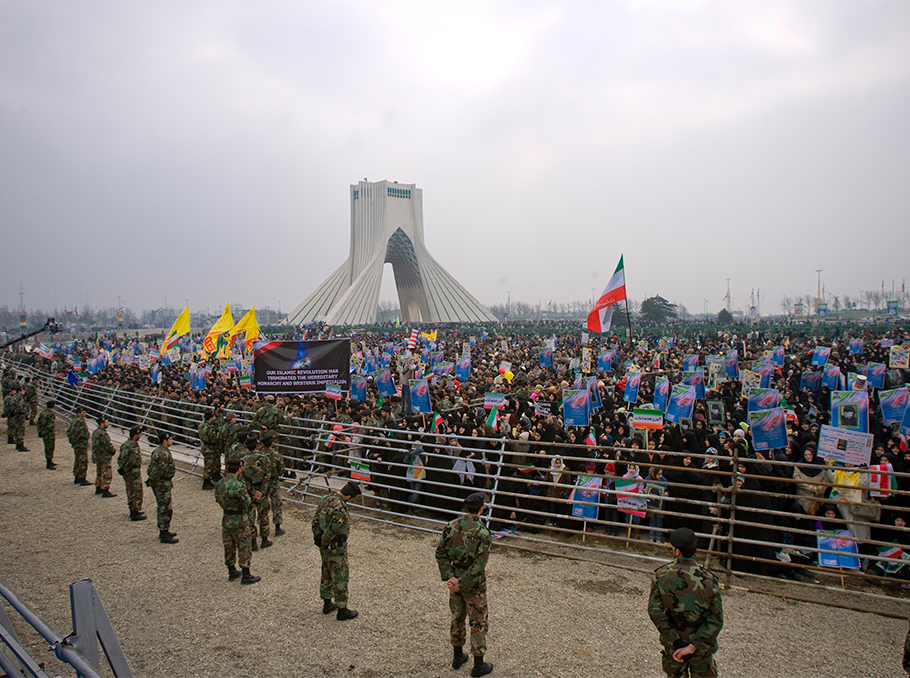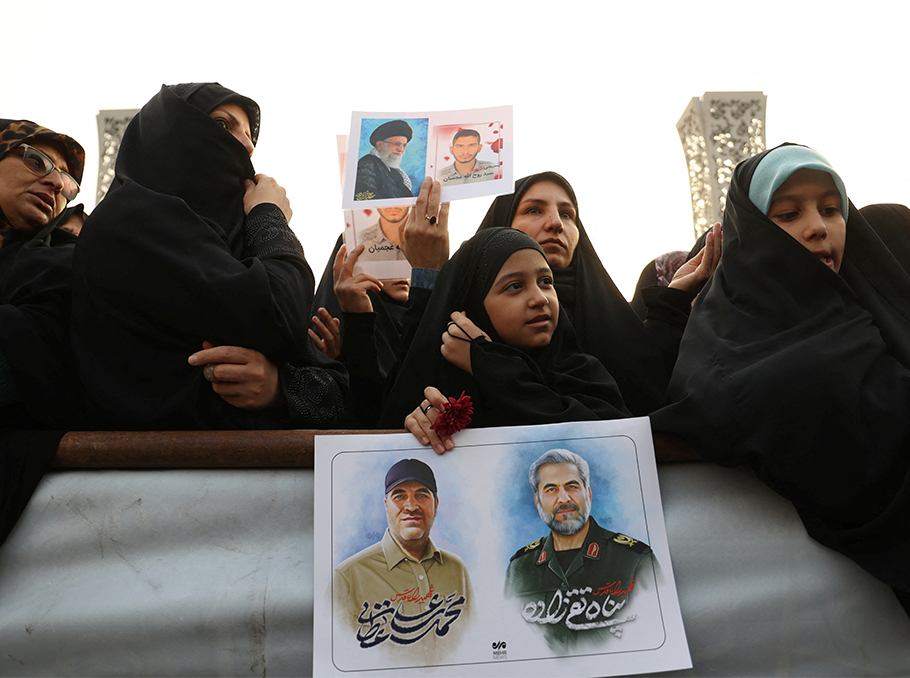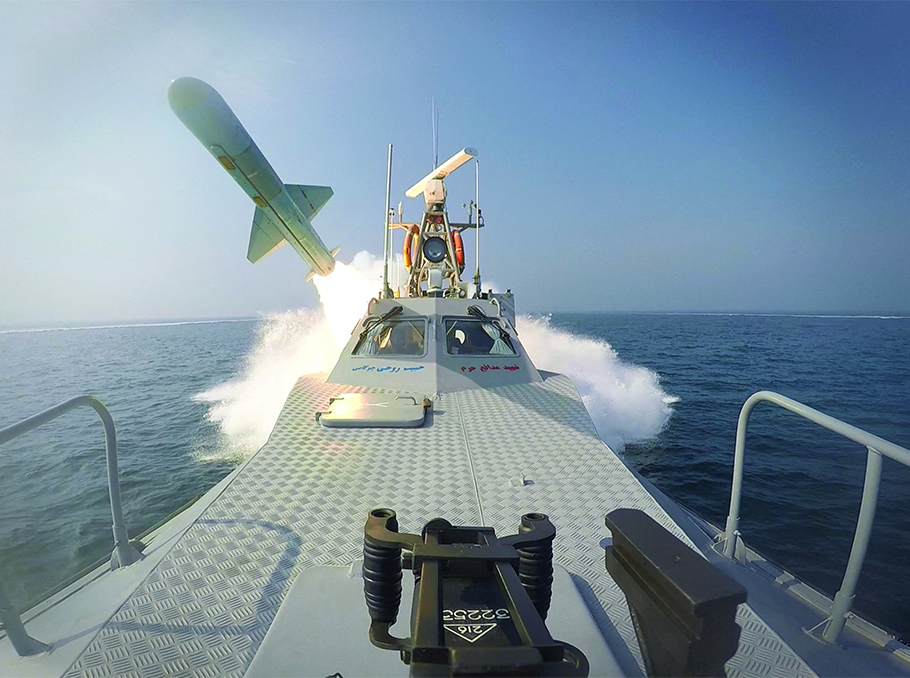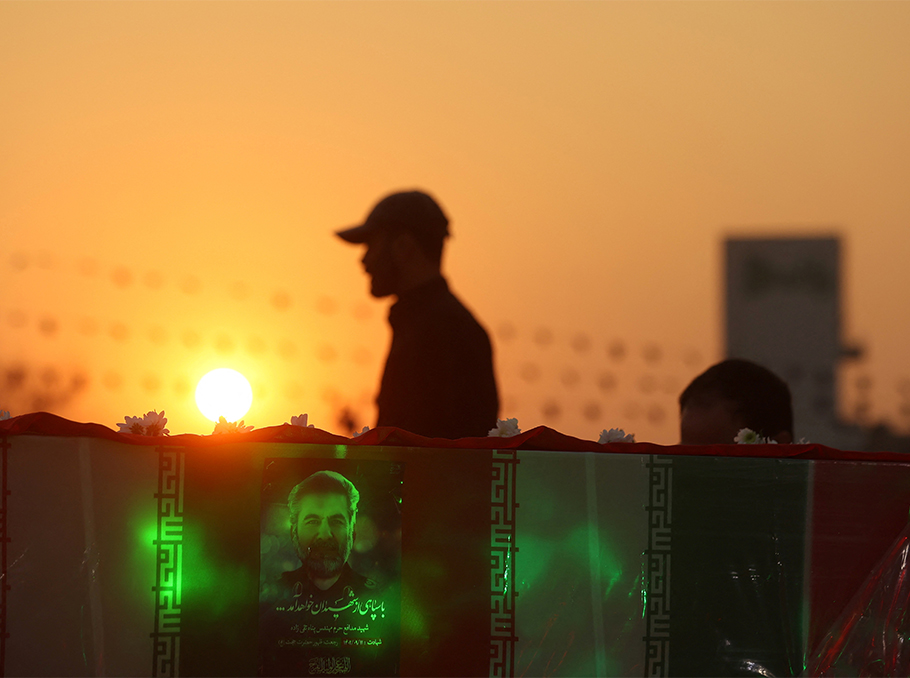Ian Bremmer
Just as I and my Eurasia Group colleagues predicted in our Top Risks 2024 report, the Middle East war continues to widen. We said that the conflict would inevitably expand significantly beyond Gaza – and potentially into a larger-scale regional conflict – because there are simply too many actors and variables that the United States does not have the ability to constrain.
We’ve seen that risk play out with the ongoing harassment of commercial shipping in the Red Sea by Yemen’s Houthis, as well as the more than 150 attacks carried out by Iranian-backed militias in Iraq and Syria against American installations in the region since Oct. 7. The US has been unable to deter these actions to date, despite issuing stern diplomatic warnings, leveling economic sanctions, creating a multinational maritime task force, and even launching limited strikes on these groups’ military capabilities.

Photo: REUTERS
Washington’s deterrence strategy failed, in part, because these Iranian proxies (the so-called “Axis of Resistance”) can withstand significant retaliation, enjoy continuing military and intelligence support from Tehran despite operating relatively autonomously, and see only reputational and political upsides from drawing a fight with the Americans. In part, it failed because Tehran understands that President Joe Biden really doesn’t want a direct fight with the Islamic Republic (especially in an election year), and it has accordingly felt emboldened to give its proxies a longer leash without fearing a shooting war with the US that it absolutely does not want either.
Yet we are now meaningfully closer to precisely that outcome after a Tehran-sponsored militia launched a drone strike against a US military outpost along the Syria-Jordan border that killed three American servicemembers and injured at least 40 over the weekend. The first deaths of US troops under fire since the war started, these casualties are the nightmare scenario the White House has been dreading for months: an attack in the region that kills American military personnel and puts Biden under intense political and strategic pressure to retaliate forcefully. Indeed, long before it happened, senior officials in the administration described this very scenario to me as a ‘red line.’

Photo: REUTERS
So make no mistake, the White House will respond in short order. The question is whether it can do that in a way that successfully deters Iran and its proxies without risking an even deadlier spiral of escalation. And on that front, Biden’s options range from the ineffective to the extremely dangerous. Moreover, the death of US servicemembers in the Middle East will be a political drag on the president no matter how he responds.
While some of Biden’s Republican opponents are advocating for direct attacks on Iranian forces – in the mold of the Trump administration’s assassination of Qasem Soleimani in 2020 as retaliation for a series of similar Tehran-backed attacks on US personnel – I expect the potential for significant US fatalities or further attacks on US troops to keep his response more limited and incremental. That means US actions will come in steps, each more aggressive than the last, with each additional step calibrated to dial up the pressure on Iran while minimizing escalatory risks.

Photo: REUTERS
At a minimum, the initial US response will include increasingly frequent and aggressive strikes against militias in Syria and Iraq, targeting larger and more sensitive assets as well as Islamic Revolutionary Guard Corps personnel linked to these groups. Though direct kinetic attacks on Iranian soil are less likely, I wouldn’t be surprised if the US also strikes Iranian naval and intelligence assets located outside of Iran.
The other front to watch is US sanctions on Iranian oil exports, where Biden is under pressure to turn up the heat. But there’s little he can do without incurring major diplomatic and economic costs elsewhere.
Will these measures be sufficient to stop Iranian proxies from hitting the United States? Maybe, just maybe, they’ll make them more cautious in their targeting. But color me skeptical. More likely, the militias in Iraq and Syria will absorb the forthcoming US strikes and intensify their attacks on US installations over the coming weeks.
When it becomes clear that his initial response has failed to deter (or provoked) further Iranian-backed strikes that will sooner or later cause additional American fatalities, Biden will have no choice but to move onto more aggressive actions such as direct targeting of IRGC leadership in Iran, overt strikes on Iranian military facilities, and - in a most severe scenario - material constraints on the purchase of Iranian crude. Any of these actions would trigger a strong Iranian response and bring the two countries much closer to direct confrontation.

Photo: REUTERS
To be sure, there are still good reasons why we should not expect this to become a full-fledged war between the US and Iran. Most important of which is that neither the Americans nor the Iranians want an all-out confrontation. The Iranians also don’t want to be on the wrong side of the Gulf States, with whom they now have functional relations after many years of largely cold (but occasionally hot) war. They certainly have no desire to ruin that and suddenly find themselves in a no-holds-barred fight against every major power in the region.
Still, the closer we get to tit-for-tat strikes between the US and Iran, the more likely accidents, miscalculations, and inadvertent escalations are to occur.
Implausible as it may sound, the likeliest way to de-escalate the conflict at the moment would be a breakthrough in the cease-fire and hostage negotiations between Israel and Hamas, which are gaining momentum. Most Iran-linked militias claim that their strikes are in solidarity with the plight of Palestinians in Gaza, so it follows that efforts to bring an end to the fighting there could help contain the expansion of the conflict elsewhere.
















Comments
Dear visitors, You can place your opinion on the material using your Facebook account. Please, be polite and follow our simple rules: you are not allowed to make off - topic comments, place advertisements, use abusive and filthy language. The editorial staff reserves the right to moderate and delete comments in case of breach of the rules.